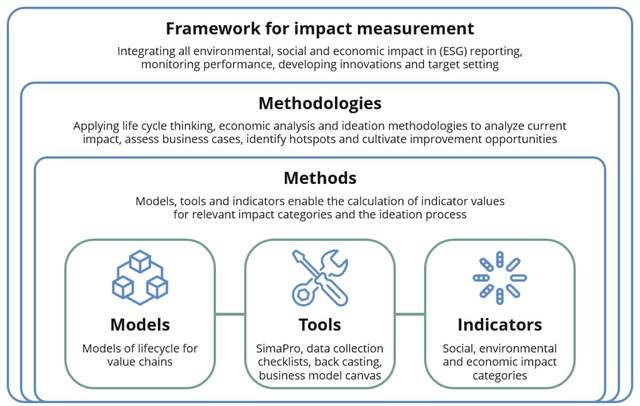Thank you for visiting the Finch & Beak website. Finch & Beak is now part of SLR Consulting, a global organization that supports its clients on setting sustainability strategies and seeing them through to implementation.
This is an exciting time for us, as our team now includes an array of new colleagues who offer advisory and technical skills that are complementary to our own including Climate Resilience & Net Zero, Natural Capital & Biodiversity, Social & Community Impact, and Responsible Sourcing.
We would like to take this opportunity to invite you to check out the SLR website, so you can see the full potential of what we are now able to offer.
According to the Global E-waste Monitor 2020, the world discarded 53.6 million metric tons of electronic waste in 2019, showing an increase of 21 percent compared to 2015. In weight, this represents the same as the combined weight of all commercial aircrafts that have been built to date. In fact, electronic waste is now the fastest-growing domestic waste stream on the planet, with future projections indicating that by 2030, global e-waste will increase by approximately 30 percent.
Electronic waste in businesses has grown tremendously during the pandemic. A survey by 3stepIT covering the UK, France, Germany, Switzerland, Austria, Norway, Sweden, Finland, and Denmark demonstrated that 84% of responding companies purchased additional hardware to enable employees to work at home during the Covid-19 crisis. At the same time, one in five surveyed companies replace desktop PCs every one to two years.
These alarming figures demonstrate that action is needed, as most of this waste ends up in landfills. Only 20% of the global e-waste is adequately managed, and on a European level, over 60% of unwanted or damaged electronics are not subject to a sorting process. Next to the direct impact on greenhouse gas emissions, there are also associated issues on the sourcing of raw materials for electronics (including conflict minerals), and health impacts from toxic additives and hazardous substances.
The impacts associated with e-waste are reason for corporations to step up their responsibility and promote the adoption of sustainable IT equipment. Moreover, there is a huge opportunity to further capitalize on these resources, rather than throw them away. The second life and recyclability of products demands more widespread consideration, as this could be seen as an additional - and currently hidden - source of revenue.
Establishing itself as a pioneer on the field with its active involvement on the circularity of products is Cisco. The tech giant puts a strong focus to the impact of its products, in particular towards the end consumer, as it has made a pledge to achieve 100% of product return. By 2025, the company also aims to have 100% of new products and packaging to incorporate circular design principles, emphasizing its involvement and concern to this particular waste stream.
Another initiative that the tech company is pursuing is the creation of ‘Cisco Refresh’, where it is offering its clients the possibility of purchasing certified remanufactured equipment. This way, the company gives a second life to some of its technological equipment and reduces the need and use of raw materials. In addition to the positive impacts on Cisco’s and its customers’ carbon footprint, this also offers more affordable options for its customers.
Collective brainpower can have a more amplified effect, and examples of collaboration between companies for the purpose of more efficient e-waste management are already present today.
In March 2021, the Circular Electronics Partnership (CEP), the first private sector alliance for circular electronics, was launched. Having the World Business Council for Sustainable Development (WBSCD) as one of the founding partners, electronic industry giants and their value chain partners such as Cisco, Google, Microsoft, LANXESS among others, aligned forces to commit towards maximizing the value of electronic materials in order to extend the lifecycle of products in the best manner possible.
Among the already announced commitments and actions are the pilot projects on material track & trace, as well as the ‘Roadmap for Circular Electronics’ – a 10-year action plan to diffuse circularity across the industry. Establishing partnerships with the aim of co-designing circular practices is the way forward, as this will generate a positive impact on the environment and will proactively address the growing e-waste stream in our society.
As the large-scale connectivity and digitization becomes ever more prevalent in our society, companies must ensure that they are mitigating the negative outcomes that could arise. Integrating environmental and social impacts into core business activities to manage emerging risks and to optimize costs is the stepping stone for that.
But, to really make changes based on ESG data, companies need to know how to value that information. Impact measurement and valuation is an emerging approach to bring sustainability into the arena of strategic decision making. It is a systematic way of measuring the impact of the core activities of a company, to manage risks, optimize costs and seize opportunities, and goes beyond the customary reporting and informing.
Pivotal in the collection and application of useful data is creating and maintaining a framework to have metrics available for daily decision making. Developing and implementing a custom framework enables companies to integrate environmental and social impacts into business cases and strategic planning. This can be done at company-wide level, but also for specific business units or projects.

Do you want to get a better grip on knowing and actively managing your company's main impacts and improve your ESG performance? Download the service description on this page for more information about our approach, or contact Johana Schlotter at johana@finchandbeak.com or +31 6 28 02 18 80 to find out how Finch & Beak can help you.
Finch & Beak
hello@finchandbeak.com
+34 627 788 170